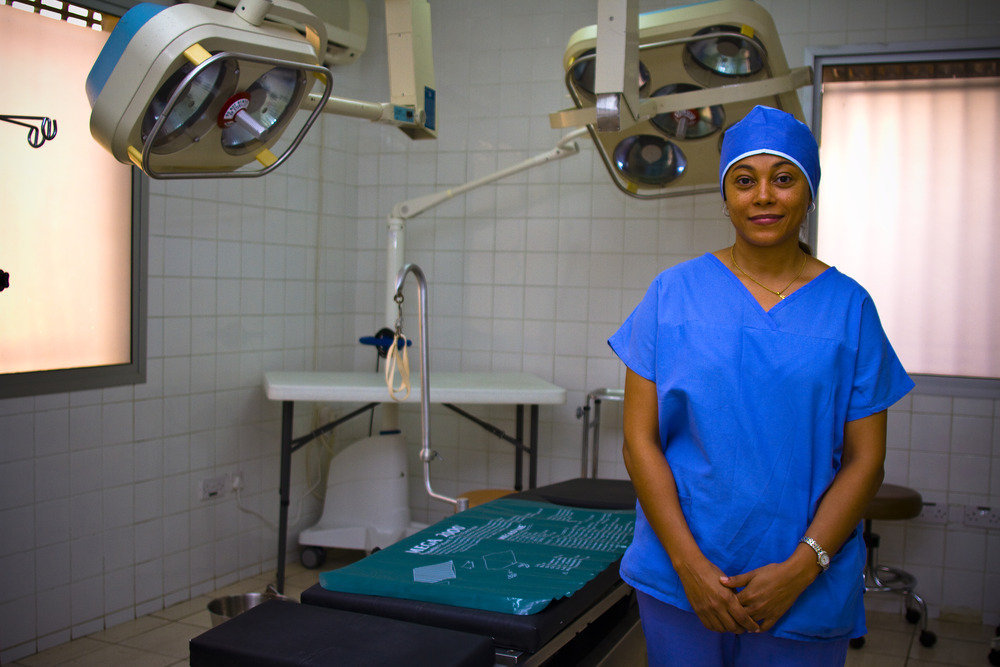BY GWADAMIRAI MAJANGE December is best known for celebrations around Mawlid and Christmas, but go ahead and mark one more commemoration down on your calendar that could make Naija stronger— Universal Health Coverage (UHC) Day.UHC Day is marked on December 12 to commemorate the first unanimous United Nations resolution that urged governments to provide universal health coverage— “affordable, quality health care to every person, everywhere.”Affirming health as a human right, the heart of this resolution can be seen in President Buhari’s public letter released ahead of the presidential poll, in which he pledged to: “guarantee financial sustainability to the health sector and minimum basic health care for all.”In other words, the President-to-be then pledged to guarantee universal health coverage. There’s just one thing—it hasn’t happened yet.Here are three persuasive reasons why President Buhari should prioritize UHC in Nigeria today:
December is best known for celebrations around Mawlid and Christmas, but go ahead and mark one more commemoration down on your calendar that could make Naija stronger— Universal Health Coverage (UHC) Day.UHC Day is marked on December 12 to commemorate the first unanimous United Nations resolution that urged governments to provide universal health coverage— “affordable, quality health care to every person, everywhere.”Affirming health as a human right, the heart of this resolution can be seen in President Buhari’s public letter released ahead of the presidential poll, in which he pledged to: “guarantee financial sustainability to the health sector and minimum basic health care for all.”In other words, the President-to-be then pledged to guarantee universal health coverage. There’s just one thing—it hasn’t happened yet.Here are three persuasive reasons why President Buhari should prioritize UHC in Nigeria today:1. UHC would help end the health crisis in the country and promote a healthy Nigeria
2. A healthier Nigeria will be a wealthier Nigeria
3. If UHC is implemented, President Buhari would leave behind a consequential legacy
Although less visible than things that cause illness, the lack of accessible, affordable care is often the underlying driver for unnecessary illness and death. Take the plight of children in Nigeria as one example: 1 out of every 8 preventable deaths in the entire world among children under five happen in Nigeria, and Nigeria has the greatest number of new HIV infections among children in the world—an estimated 41,000—roughly equivalent to the next eight countries combined.Weak health coverage often most impacts the poor and vulnerable, exacerbating maternal and child deaths, outbreaks like Ebola, and infectious diseases like HIV, malaria, and tuberculosis. Most of these deaths can be avoided by increasing affordable access to primary health care services—allowing more children to grow up to be future teachers, engineers, and other contributing members of society.For those who do access healthcare, it’s expensive. According to the World Bank, roughly 750 out of every 1,000 Naira spent on health in Nigeria comes directly from Nigerian citizens’ pockets. (Compare this to smaller economies and poorer African countries like Kenya, Ghana, and Tanzania, where citizens spend roughly 250 out of every 1,000 Naira spent on health.) Especially for those without extra Naira to spend, these high costs mean oftentimes people either won’t seek treatment or are forced to sell belongings or forego other essentials—like food for their family—feeding into the cycle of poverty and poor health.But UHC can address these economic difficulties – not only for individual Nigerians, but also for Nigeria as a whole. The money Nigerian’s spend on health would be directed to other economic activities. Research done by Nigerian professor Solomon Olakojo and others indicates that a 10% increase in health expenditure per person can lead to over 20% declines in the rates of deaths among babies and young children, which in turn would boost life expectancy. And increasing life expectancy by just one year can reap huge economic benefits; last year alone – had this milestone been achieved – it would have generated an additional 3.7 trillion Naira.Along with leaders from countries like Ethiopia, Ghana and Rwanda, President Buhari could be on the cutting edge of UHC progress in sub-Saharan Africa. And when Nigerians are healthier and wealthier, he would rightfully gain recognition.But providing UHC doesn’t just mean promising to do it; it means actually doing it. And the barriers to achieving UHC are not just technical, but political.Nigeria, unlike some countries, already has a framework to get to UHC: the National Health Act (NHA), enacted in 2014. The law was seen as an important milestone towards Universal Health Coverage in Nigeria and seeks to guarantee access—both physical and financial—to basic healthcare for all Nigerians, particularly the poor who cannot afford to pay out of pocket to get a malaria or HIV test or to pay for delivery of their children.President Buhari can take a powerful political step to fast-tracking progress toward UHC by budgeting for the implementation of the National Health Act this year. That in itself would be a fantastic social investments that would cushion poor Nigerians especially those in the Fragile northeast who have virtually no health services. Starting this medical revolution by facilitating primary health care and universal health coverage for Nigerians, would make celebrating of UHC day in Nigeria worthwhile.

2. A healthier Nigeria will be a wealthier Nigeria
3. If UHC is implemented, President Buhari would leave behind a consequential legacy







0 comments:
You are entitled to your opinion, please use the Blogger comment or Facebook comment to air your view.